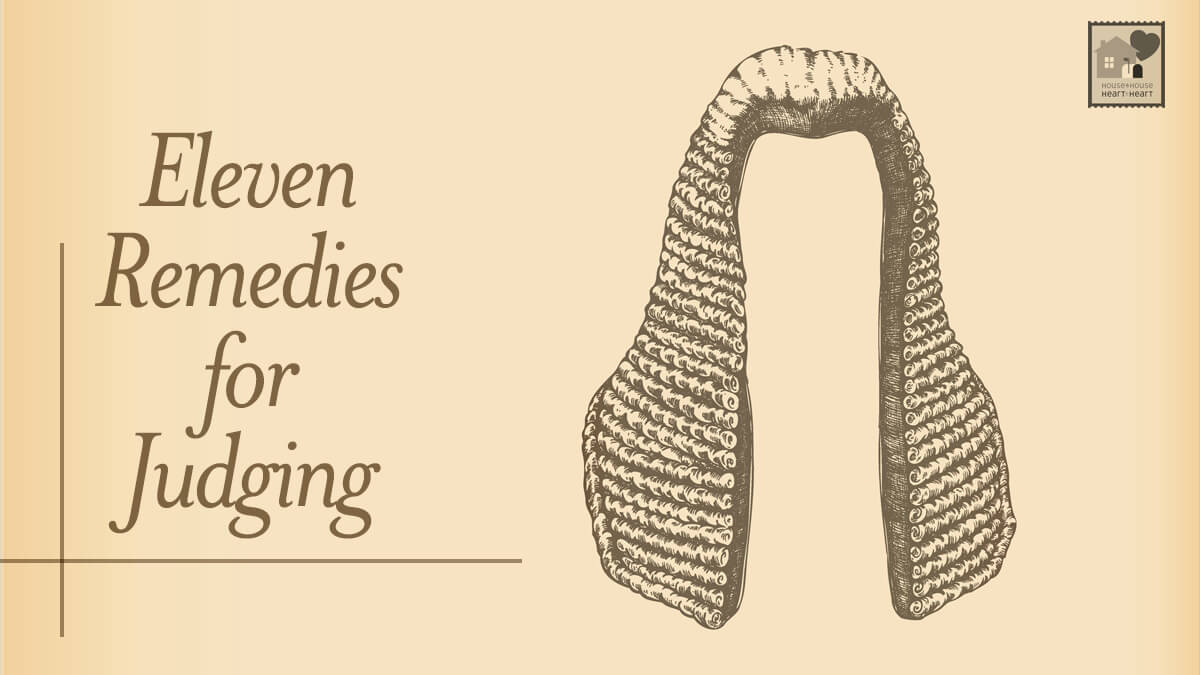1) Love. Love is always slow to expose, always eager to believe the best, always hopeful, always patient (1 Corinthians 13:7; cf. 1 Peter 4:8). The faults of others will appear thick if our love for them is thin.
2) Consider how despicable it is. Matthew 7:3 suggests the censorious judge anxiously looks for a fault upon which to pounce. He is a “picker.” How despicable! The critic is always actuated by improper motives (John 12:4-6).
3) Practice the golden rule (Matthew 7:12). Substituting “think and judge” for “do” in this passage makes it read, “Whatsoever ye would that man should think and judge of you, do ye even so to them.” This would eliminate unkind censoring.
4) Examine self (1 Corinthians 11:28; 2 Corinthians 13:5). Upon examining self we will see that “there is so much good in the worst of us, and so much bad in the best of us, that it little behooves any of us to talk about the rest of us.” So, when looking for faults, use a mirror and not a telescope.
5) Look for the good in others. Though Paul was a blasphemer, a persecutor, and injurious, God saw in him the possibility of being a chosen vessel and minister (1 Timothy 1:13; Acts 9:15; Acts 26:16). Be like the bee and concentrate on the sweet and beautiful, rather than like the buzzard who concentrates on the dead and the foul. Though the dog was ugly and mangy the little child said, “But he wags his tail.” Let us not concentrate exclusively on the one small black dot on the white sheet of paper, and fail to see and appreciate the entire white surface that remains unmarred. Be a Barnabas and see the good in others (Acts 9:26-31; Acts 15:36-41).
6) Ask God for help in overcoming this sin. It is not accidental that “ask, and it shall be given you” immediately follows the Lord’s classic text on judging (Matthew 7:7).
7) Consider how much hurt you inflict. The sharp barbs of criticism wound and discourage. They also destroy the victim’s reputation, that upon which his influence is predicated, resulting in his potential for good being seriously hampered.
8) Consider the fact that the victim is your brother (Matthew 7:3-5; James 4:11-12). Judging is contrary to the very spirit of brotherhood.
9) Put yourself in the other person’s shoes. The old Indian prayed, “Great Spirit, help me never to judge Indian brother until I have walked two weeks in his moccasins.” Ezekiel sat where others sat before warning them (Ezekiel 3:15-17).
10) Remember that our judgments are often wrong (1 Samuel 16:6-13). Eliab misjudged the motives of David (1 Samuel 17:28-29). Lysias misjudged Paul (Acts 21:37-38). Nathanael was wrong in his judgment about Jesus of Nazareth (John 1:46).
11) Consider what judging will do to you: (a) It will blind you to your own faults (Matthew 7:1-6; Luke 18:9-14). This makes repentance and confession impossible (Acts 8:22; 1 John 1:8-10). (b) It will destroy your friends. Picking your friends to pieces makes them come to loathe you. (c) It will put your eyes out to the beauty and virtues of others. (d) It will rob you of happiness. No one can live happily and meaningfully on a diet of negatives.
—Wendell Winkler, Heart Diseases and Their Cure






